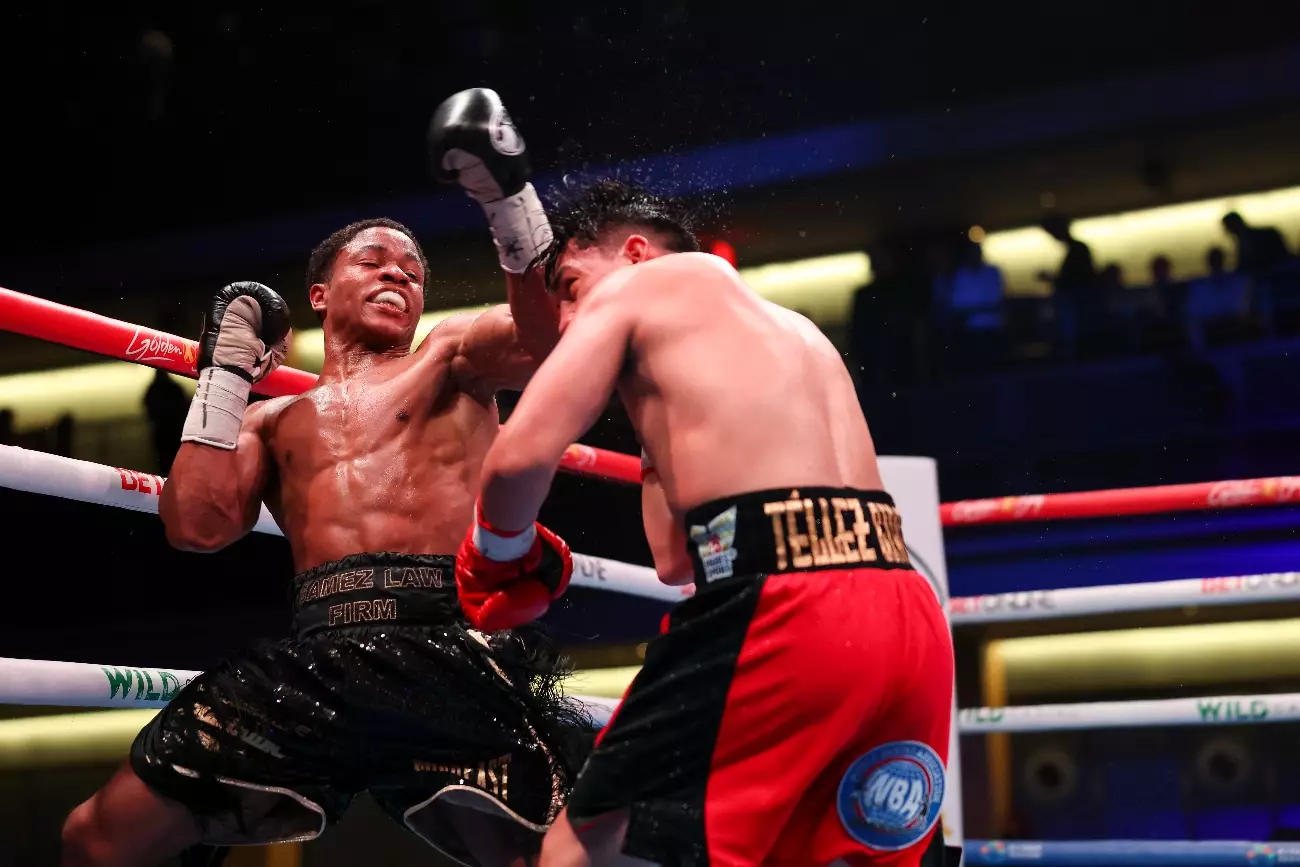In the world of boxing, each matchup is scrutinized, and the upcoming encounter between WBC lightweight champion Shakur Stevenson and contender Floyd “Kid Austin” Schofield on February 22nd in Riyadh is no exception. The fight has stirred controversy and debate among fans and analysts alike, particularly amid comments from fellow boxer Abdullah Mason, who believes Schofield stands little chance against the seasoned champion. With Stevenson’s impressive record and Schofield’s relatively limited experience at the elite level, this fight raises questions about competitive balance and the implications of matchmaking in professional boxing.
At just 22 years old, Floyd Schofield boasts a record of 18 wins, 12 of which were achieved by knockout. However, his experience predominantly consists of stepping into the ring with less-traveled opponents. In contrast, Stevenson, with his pristine record of 22-0 and 10 knockouts, brings a wealth of competitive experience that races beyond Schofield’s. Mason doesn’t hesitate to emphasize this disparity, suggesting Schofield lacks the exposure and resilience often garnered through facing tough adversaries. Simply put, the young contender appears to be learning the ropes as he dives headfirst into a battle with one of boxing’s elite—a daunting challenge that could serve as an unsettling wake-up call.
Interestingly, Stevenson’s choice of Schofield as an opponent raises eyebrows. With murmurs of a lucrative unification bout against WBA champion Gervonta Davis on the horizon, it seems prudent for Stevenson to shield himself from potential pitfalls. By facing a less seasoned opponent, he minimizes the risks associated with injuries or unfavorable outcomes that could jeopardize future lucrative engagements. Mason’s perspective sheds light on this strategic matchmaking, noting that fighting a more challenging opponent could have introduced a higher likelihood of defeat, especially considering Stevenson’s previous narrow victory against Edwin De Los Santos, which showcased vulnerabilities that savvy opponents could exploit.
While the intrigue surrounding this fight is palpable, the promotional aspect feels somewhat dormant, particularly regarding Schofield. Deprived of an impactful promotional campaign, his hype appears subdued, which contrasts sharply with the stature of his opponent. Abdullah Mason’s remarks indicate a measure of disappointment regarding Schofield’s promotion efforts. In a sport that thrives on publicity, the failure to create a compelling narrative to draw in fans jeopardizes the financial success of the event—a crucial element for both fighters and promoters alike.
Mason remains skeptical of Schofield’s ability to emerge victorious, suggesting that Stevenson will dictate the tempo and flow of the bout. He appears convinced that Stevenson holds the upper hand, predicting a likely scenario where Schofield is either soundly outclassed or even stopped. However, the unpredictable nature of boxing cannot be ignored; while Mason downplays Schofield’s chances, the sport’s history is riddled with underdog triumphs that have defied expectations. The excitement that accompanies boxing lies in its uncertainty—the ability of a fighter to land the proverbial knockout punch that alters the course of their career.
For both fighters, the implications of this match are significant. If Stevenson delivers a decisive victory, it could bolster his status as a commanding figure in the lightweight division, further paving the way for high-stakes encounters against formidable opponents like Gervonta Davis. On the flip side, if Schofield manages to impress, even in defeat, he could find himself in a stronger position within the boxing hierarchy, potentially opening doors for more competitive matchups moving forward.
In essence, the showdown between Shakur Stevenson and Floyd “Kid Austin” Schofield represents a vivid clash between experience and ambition. The narrative twists surrounding this fight not only heighten interest among boxing enthusiasts but also serve as an essential test for Schofield, who may need to rise to the occasion amid skepticism. Ultimately, while Abdullah Mason’s predictions lean heavily in favor of Stevenson, the unpredictability of boxing continues to fuel fascination and speculation as the fateful date approaches. The outcome—whether it solidifies Stevenson’s status or reshapes Schofield’s narrative—promises to provide a chapter of suspense in the ongoing saga of the boxing realm.


Leave a Reply